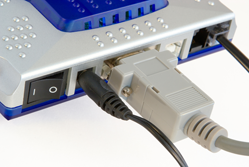How to cope without broadband
 Broadband access is a business essential. So what do you do if the location of your business means you can’t get broadband? Here’s how to avoid lagging behind your competitors
Broadband access is a business essential. So what do you do if the location of your business means you can’t get broadband? Here’s how to avoid lagging behind your competitors
Broadband provision is a controversial issue. Although the Government has committed to making the UK the fastest broadband nation in Europe by 2015, according to Akamai's quarterly 'State of the Internet Report', the UK’s broadband services rank a lowly 25th globally.
So if you don’t have access to broadband, you need to find a way to manage without it until the Government delivers on its pledge.
(Don't know how fast your connection is? Use our internet speed checker.)
Broadband alternatives
You could consider using a dial-up internet connection, although this is painfully slow and usually more expensive. You need a landline phone, and can choose whether you sign up to a pay-as-you-go or unmetered monthly fee.
Dial-up runs at around 50 kilobytes per second, compared to a slow broadband connection of 2 megabytes per second (Mbps). Dial-up speeds allow you to do text-only tasks, such as sending emails and updating your Twitter account.
Downloading images will take a while, and you might as well forget about accessing online video.
If you have a mobile phone signal but no broadband, you could buy a ‘dongle’ to plug into the USB socket on your computer. This gives you broadband access anywhere with 3G mobile coverage. Accessing the internet like this typically costs £10 - £20 per month, but you don’t have to pay line rental. There are also pay-as-you-go dongles available.
Another option is to install your own satellite internet connection. But there will be an installation fee and you have to pay for your own hardware upfront — it costs around £150 for the satellite dish, £30 to install, and then from £25 a month in ongoing charges.
If you are not entirely isolated, consider bringing your community together to fund a fibre-optic broadband network. Individuals from the affluent community of Lyddington in the East Midlands set up the company Rutland Telecom in 2007, increasing download speeds from 0.5 Mbps to 32 Mbps with the help of investors, then offering services to local market towns.
Communicate offline
Having no broadband access can limit your range of marketing options, but you could turn it to your advantage by making a personal approach your unique selling point.
Find out about local networking groups by calling your local chamber of commerce or scanning the pages of the local newspaper. Face to face contact can be more powerful than online conversations.
Co-working spaces, where you can drop into a hub to use high-speed internet, are becoming a popular solution. This might mean travelling into a town, but it enables you to pick up emails and update social networks regularly. If you don’t use the internet at all, you risk appearing outdated.
Another limitation is that without broadband access, you will be unable to manage your own website, as even if you have dial-up, upload speeds can be very poor. However, you could outsource your website management to an independent web designer or agency, which can cost from £30-£40 an hour for updates and maintenance.
Popular content on networking and the internet:
Find more articles, videos and tools in the resources box.







Comments
Add a comment
Not registered? We'll create a new account for you when you add your comment